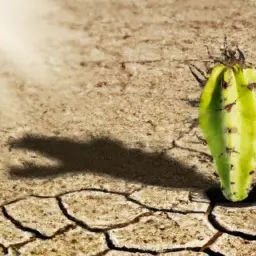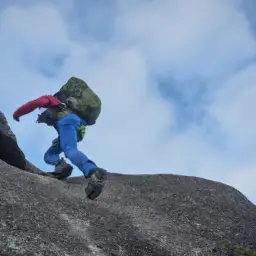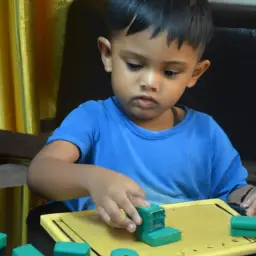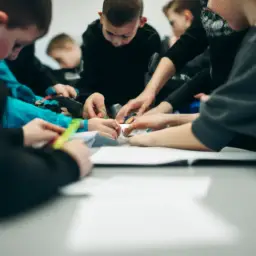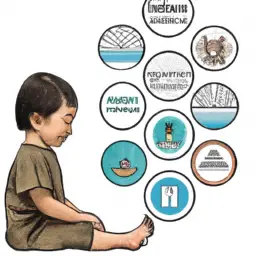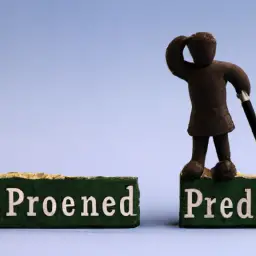Are you looking for ways to help your students develop the grit needed to succeed in today’s fast-paced world? Grit has been identified as one of the key traits needed for success in school and beyond. In fact, research has shown that students who possess grit are more likely to achieve their goals, overcome obstacles, and persist in the face of challenges.
As an educator, you have the power to foster grit in your students. By creating a supportive learning environment and providing opportunities for growth and development, you can help your students develop the resilience, perseverance, and determination needed to succeed.
In this article, we will explore seven ways to foster grit in educational settings. From encouraging a growth mindset to celebrating effort and progress, these strategies will help your students develop the grit needed to achieve their goals and succeed in life.
Key Takeaways
- Educators can foster grit in students by creating a supportive learning environment that encourages a growth mindset, determination, and a willingness to learn from mistakes.
- Personalized learning, self-reflection strategies, and student-led projects can promote student agency and help foster grit.
- Developing resilience through teaching coping skills, providing opportunities for failure and growth, and encouraging a growth mindset can help students develop grit.
- Emphasizing effort and growth, celebrating small wins and milestones, and prioritizing the journey and effort put into learning can help create a classroom culture that values perseverance and resilience.
Define Grit and Its Importance in Education
You need to understand that grit, which is the ability to persevere and overcome challenges, is crucial for success in education. Defining grit involves looking at the characteristics and development of this trait.
Gritty individuals are those who are passionate about their goals, and they have a strong work ethic. They are resilient in the face of adversity and setbacks, and they never give up on their dreams. Grit is something that can be developed over time, and it requires a growth mindset, determination, and a willingness to learn from mistakes.
The importance of grit in academic success cannot be overstated. Students with grit are more likely to overcome obstacles and achieve their goals, even when faced with difficult circumstances. They are also better equipped to handle the pressures of academic life, such as deadlines, exams, and challenging coursework.
By developing grit in educational settings, students can learn valuable life skills that will serve them well in the future. Grit is not only important for academic success but also for personal growth and development.
Encourage Growth Mindset
Feeling like you can improve and grow your abilities, instead of feeling stuck with them, is a key ingredient to developing grit. Encouraging a growth mindset in educational settings can be achieved by implementing growth mindset strategies. These strategies focus on helping students understand that their intelligence and abilities can be developed through hard work and dedication. This mindset helps students view challenges and failures as opportunities for growth and learning, rather than setbacks.
To foster perseverance, educators can also teach students how to set goals and work towards achieving them. By setting achievable goals, students can develop the habit of persisting through challenges and setbacks.
Additionally, providing students with constructive feedback can help them understand their strengths and areas for improvement, and motivate them to continue working towards their goals. Encouraging students to reflect on their progress and celebrate their achievements can also help them stay motivated and invested in their learning journey.
By fostering a growth mindset and providing students with the tools to persevere through challenges, educators can help develop grit in their students.
Provide Opportunities for Autonomy
You can provide opportunities for autonomy in your educational setting to foster grit in your students. Encouraging self-directed learning allows for personal choice and promotes ownership of learning.
By giving your students the freedom to choose how they approach their education, you empower them to take control of their own learning and develop the grit necessary to succeed.
Foster Self-Directed Learning
Get ready to embark on a journey of independent exploration and discovery as you take charge of your own learning and become a self-directed learner. In educational settings, fostering self-directed learning is vital in developing grit as it allows students to set their own goals, manage their own time, and take ownership of their learning. By doing so, students become more resilient and persistent in achieving their objectives.
One way to foster self-directed learning is by providing self-reflection strategies. Encourage students to reflect on their learning progress and identify their strengths and weaknesses. This will enable them to set realistic goals and develop a plan to achieve those goals. Another way is through student-led projects. These projects provide an opportunity for students to take charge of their learning and apply what they have learned in a meaningful way. By giving them ownership of the project, students become more invested in their learning and are more likely to persevere through challenges. By fostering self-directed learning, educators are empowering students to take control of their education and develop the grit required to succeed in school and beyond.
| Benefits of Self-Directed Learning | Examples of Self-Directed Learning Activities |
|---|---|
| Develops independence and autonomy | Setting personal goals and tracking progress |
| Encourages critical thinking and problem-solving skills | Creating a project plan and timeline |
| Cultivates a love for learning | Conducting research and presenting findings |
Note: The table is meant to provide examples only and is not an exhaustive list of the benefits and activities associated with self-directed learning.
Allow for Personal Choice
Allowing personal choice in learning can make the educational experience more enjoyable and engaging for students. Personalized learning is all about providing students with the opportunity to choose their own learning paths and explore their interests. By allowing them to have a say in what they learn, students feel a sense of ownership over their education and are more likely to be invested in the process.
For instance, instead of being assigned a specific topic to research for a project, students can be given a list of options to choose from, or even be encouraged to come up with their own topic. This not only allows for personal choice, but also promotes creativity and critical thinking.
Student agency is another crucial aspect of fostering grit in educational settings. When students have agency, they are empowered to take control of their own learning and become active participants in the educational process. This can be achieved by giving students opportunities to make decisions about their own learning, such as setting goals, choosing learning strategies, and reflecting on their progress.
By promoting student agency, educators can help students develop a growth mindset and the perseverance necessary to overcome challenges and achieve their goals. Ultimately, allowing for personal choice and promoting student agency can help foster grit and create a more meaningful and engaging educational experience for students.
Promote Ownership of Learning
You’ve learned about the importance of allowing personal choice in fostering grit in educational settings. Now, let’s talk about another way to promote grit through student-driven learning.
When students take ownership of their learning, they are more likely to develop grit by setting goals and tracking their progress towards achieving them. One way to encourage ownership of learning is to involve students in the goal-setting process.
Allow them to set realistic, achievable goals that align with their interests and abilities. Then, help them develop a plan to achieve those goals. By doing so, students are more invested in their learning and are more likely to persist in the face of challenges.
Additionally, by tracking progress towards their goals, students can see their growth and celebrate their successes, further fueling their grit.
Cultivate Resilience
Developing resilience is key to fostering grit in educational settings, as it allows students to persist through challenges and setbacks. To help students develop resilience, educators can implement strategies such as teaching coping skills, providing opportunities for failure and growth, and encouraging a growth mindset.
By teaching coping skills, students can learn to manage stress and anxiety, which can help them overcome obstacles. Providing opportunities for failure and growth allows students to learn from their mistakes and build confidence in their abilities. Finally, promoting a growth mindset can help students see challenges as opportunities for growth and learning.
Building mental toughness is another effective way to cultivate resilience in students. Techniques such as visualization, positive self-talk, and goal-setting can help students develop a strong mindset that can carry them through difficult times. Exercises such as physical activity and mindfulness can also help students build resilience by reducing stress and increasing focus.
By incorporating these techniques and exercises into educational settings, educators can help students develop the resilience they need to persist through challenges and achieve their goals. With resilience and grit, students can overcome obstacles and achieve success both in and out of the classroom.
Foster Positive Relationships
To foster positive relationships, you should encourage collaboration, which allows students to work together and learn from each other.
Providing opportunities for peer support is also essential, as it creates a sense of community and encourages students to help each other out.
Building connections with teachers and mentors is equally important, as it allows students to have someone to turn to for guidance and support.
By fostering positive relationships, you can create a supportive learning environment that promotes growth and success.
Encourage Collaboration
When working on projects, it’s important to collaborate with your peers to develop grit and achieve success. Collaborative learning and team building are essential skills that can help students improve their ability to work together and overcome challenges. By working with others, students can learn to share their ideas, communicate effectively, and develop a sense of accountability.
To encourage collaboration, teachers can incorporate activities that require students to work in teams. For example, a group project that involves multiple steps and requires each student to contribute can be a great way to foster collaboration. Additionally, teachers can use a variety of tools such as online platforms and apps to facilitate communication and collaboration among students. By encouraging collaboration, students can develop grit and learn to persevere through challenges while also building important social and communication skills.
| Pros | Cons |
|---|---|
| Diverse perspectives | Different schedules |
| Division of labor | Communication barriers |
| Improved communication skills | Conflict resolution |
| Shared accountability | Inequality of effort |
| Improved problem-solving | Difficult personalities |
| Higher quality work | Time management issues |
Provide Opportunities for Peer Support
You can enhance your academic experience by seeking and providing peer support, which can help you overcome challenges and build meaningful relationships with your classmates. Here are some ways to provide peer support:
-
Peer feedback: Giving and receiving feedback from your peers can help you improve your work and learn from each other’s strengths and weaknesses. You can start by asking your classmates for their opinions on your work, and vice versa. This can also help you develop a more critical eye for your own work.
-
Collaborative learning: Working with your peers on group projects or assignments can help you develop important skills such as communication, problem-solving, and teamwork. This can also help you build a sense of community and support within your classroom.
-
Study groups: Forming study groups with your peers can help you stay accountable, review material, and learn from each other’s perspectives. You can also use this time to share tips and strategies for success.
-
Mentorship: Seeking guidance from older students or mentors can provide valuable insights and advice as you navigate your academic journey. This can also help you develop relationships with role models who can inspire and motivate you.
Build Connections with Teachers and Mentors
Connecting with your teachers and mentors is crucial for academic success and personal growth, as they can provide guidance, support, and valuable insights. Teacher relationships and mentor connections can help students develop grit by building trust and fostering support. When students have a strong connection with their teachers and mentors, they are more likely to persevere through challenges and setbacks.
One way to build connections with teachers and mentors is by actively seeking their feedback and advice. This can be done by participating in class discussions, asking questions, and scheduling one-on-one meetings. Students who take the initiative to seek out feedback show their teachers and mentors that they’re invested in their own learning and growth.
Additionally, building connections with teachers and mentors can help students feel more comfortable reaching out for help when they need it, which can be especially important when facing tough academic or personal challenges. By fostering strong relationships with their teachers and mentors, students can develop the grit needed to overcome obstacles and succeed in their educational endeavors.
Celebrate Effort and Progress
When fostering grit in educational settings, it’s important to celebrate effort and progress.
You can do this by emphasizing process over product, recognizing and rewarding growth, and encouraging reflection and self-assessment.
By focusing on these key points, you can help students develop a growth mindset and the resilience needed to persevere through challenges.
Emphasize Process Over Product
By prioritizing the process of learning over the end result, you can cultivate grit in your students. Emphasizing the journey and the effort put into it, rather than just the final outcome, helps students understand that success is not just about talent, but also about hard work and perseverance. This approach also helps students develop a growth mindset, where they see challenges as opportunities for growth and improvement, rather than as threats to their abilities.
To emphasize this point further, here are three ways you can prioritize process over product and nurture persistence in your students:
-
Encourage students to reflect on their learning process, rather than just their grades or scores. Ask them to identify what they did well, what they struggled with, and what they learned from the experience.
-
Provide opportunities for students to revise their work and give feedback that focuses on growth and improvement. Instead of just correcting mistakes, provide suggestions for how they can make progress and build on their strengths.
-
Celebrate the small wins and milestones along the way. By acknowledging the effort and progress students make, you can help them stay motivated and committed to their goals.
Recognize and Reward Growth
You’ll love recognizing and rewarding growth in your students as it helps them to see the value of effort and progress. When you acknowledge and praise their progress, you’re sending a powerful message that their hard work and determination are paying off. This recognition can motivate them to continue striving for excellence, even when they face obstacles or setbacks.
To effectively recognize progress and reinforce a growth mindset, it’s important to focus on the process rather than the outcome. Celebrate small wins, such as completing a difficult assignment or showing improvement in a particular skill. Encourage students to set goals and track their progress, and provide specific feedback that highlights their effort and growth.
By doing so, you’ll create a classroom culture that values perseverance and resilience and helps students develop the grit they need to succeed in school and beyond.
Encourage Reflection and Self-Assessment
Encouraging students to reflect on their progress and assess their own growth is an effective way to foster a sense of self-awareness and empower them to take ownership of their learning. Here are three ways to encourage reflection and self-assessment in your classroom:
- Provide opportunities for students to practice metacognition:
Metacognition is the process of thinking about one’s own thinking. Encourage students to reflect on their learning by asking them to explain how they solved a problem or why they chose a particular strategy. This will help them become more aware of their own thought processes and develop a deeper understanding of the material.
- Emphasize the importance of feedback:
Feedback is essential for growth and improvement. Make sure to provide students with regular feedback on their work, both positive and constructive. Encourage them to use this feedback to reflect on their progress and make adjustments as needed.
- Incorporate self-assessment into assignments:
Give students the opportunity to assess their own work. This can be done through self-checklists, rubrics, or reflection prompts. Encourage them to identify their strengths and weaknesses and set goals for improvement. By incorporating self-assessment into assignments, students will develop a greater sense of responsibility for their own learning.
Frequently Asked Questions
What are some specific strategies for celebrating effort and progress in educational settings?
When it comes to celebrating effort and progress in educational settings, there are a few specific strategies that can really make a difference.
One approach is to praise students for their hard work, rather than just their achievements. This helps to motivate them and build their self-esteem, as they feel like their effort is being recognized and valued.
Another tactic is to set small, achievable goals for students and celebrate when they reach them. This helps to keep them motivated and focused, and gives them a sense of accomplishment.
Finally, it’s important to provide students with regular feedback on their progress, so they can see how far they’ve come and continue to work towards their goals.
By incorporating these strategies, you can create a more positive and effective learning environment that fosters grit and helps students succeed.
How can educators promote resilience in students who may be facing significant personal challenges?
To support students facing personal challenges, you can start by providing them with personalized support. This might include individual check-ins, offering counseling or therapy services, or connecting them with resources outside of school.
Additionally, encouraging a growth mindset can help students see challenges as opportunities for growth and development, rather than insurmountable obstacles. Emphasizing the power of effort and perseverance can also help students build resilience in the face of adversity.
By providing personalized support and promoting a growth mindset, educators can help students develop the skills and mindset necessary to overcome personal challenges and thrive academically and personally.
Are there any potential drawbacks to fostering grit in educational settings?
When it comes to fostering grit in educational settings, it’s important to consider the potential drawbacks.
While developing resilience and perseverance are important skills, there can be negative consequences if students are pushed too hard.
Some students may become overly stressed and anxious, impacting their mental health.
It’s crucial for educators to find a balance between challenging students and supporting their well-being.
By promoting a growth mindset and providing opportunities for students to learn from failure, educators can help students develop grit without sacrificing their mental health.
How can educators strike a balance between providing opportunities for autonomy and ensuring that students are still meeting academic standards?
When it comes to finding balance between autonomy and standards, educators need to create motivation and inspire progress.
It’s important to provide opportunities for students to have some control over their learning and to explore their interests, but it’s equally important to ensure that they are meeting academic standards.
One way to do this is to set clear expectations and goals, and to encourage students to take ownership of their progress towards those goals.
Another way is to provide frequent feedback and support, so that students feel empowered to make progress towards those goals.
Ultimately, finding the right balance between autonomy and standards will depend on the unique needs and goals of each individual student.
Are there any age or grade level limitations to implementing grit-building strategies in the classroom?
When it comes to building grit in the classroom, there are no age limitations to implementing these strategies. Whether you’re teaching kindergarten or high school, there are ways to encourage resilience, determination, and perseverance in your students.
However, the approach may vary depending on the age group. For younger students, it may be more beneficial to focus on developing a growth mindset and providing opportunities to practice problem-solving skills.
As students get older, you can gradually introduce more challenging tasks that require grit and perseverance. Ultimately, the key to successful classroom implementation is to create a supportive and encouraging environment that recognizes and celebrates effort and progress, rather than just focusing on achievement.
Conclusion
So, you want to foster grit in educational settings? Great! You’ve learned that grit is a crucial trait that can help students overcome obstacles, achieve their goals, and succeed in life.
You’ve also discovered seven ways to cultivate grit, including encouraging a growth mindset, providing opportunities for autonomy, and fostering positive relationships.
Now it’s time to put these strategies into action. Remember, fostering grit is not a one-time event, but rather an ongoing process. Be patient, persistent, and consistent in your efforts.
Celebrate effort and progress, and help students understand that setbacks and failures are a natural part of the learning process. With your guidance and support, students can develop the grit they need to thrive in school and beyond.
Good luck!
















































